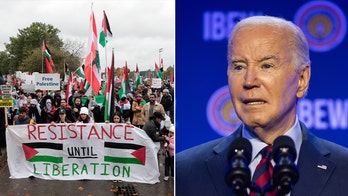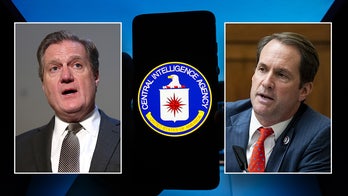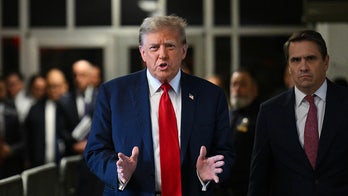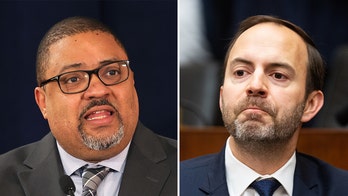The White House has released their letter to Illinois Governor Pat Quinn on the acquisition of the Thomson facility in Illinois and the decision to to house some of the Guantanamo detainees there.
Governor Quinn and Illinois Senator Dick Durbin will meet with meet with senior administration officials at the White House later today to discuss the development.
December 15, 2009
The Honorable Pat Quinn
Governor of Illinois
Chicago, Illinois 60601
Dear Governor Quinn:
On January 22,2009, President Obama issued Executive Order 13492, directing the closure of the detention center at Guantanamo. A key purpose of this Order was to protect our national security and help our troops by removing a deadly recruiting tool from the hands of al-Qa'ida. This should not be a political or partisan issue. This action is supported by the nation's highest military and civilian leaders who prosecuted the war against al-Qa'ida under the previous administration and continue to do so today. It is also supported by five previous Secretaries of State who served in both Democratic and Republican administrations, including those of Presidents Nixon, Ford, George H.W. Bush, Clinton, and George W. Bush.
On November 12,2009, you wrote to Defense Secretary Robert Gates and Attorney General Eric Holder proposing that the Federal Government work with the State of Illinois to acquire the Thomson Correctional Center to house Federal inmates and a limited number of detainees from Guantanamo Bay, Cuba. We appreciate the leadership and assistance you and Senator Dick Durbin have provided during our evaluation of this proposal. We also would like to thank Thomson Village President Jerry "Duke" Hebeler and the people of Thomson and the surrounding region for their support and hospitality.
We write to inform you that the President has directed, with our unanimous support, that the Federal Government proceed with the acquisition of the facility in Thomson. Not only will this help address the urgent overcrowding problem at our nation's Federal prisons, but it will also help achieve our goal of closing the detention center at Guantanamo in a timely, secure, and lawful manner.
Executive Order 13492 directed us to close the detention facility at Guantanamo Bay and to conduct a review of the most secure and efficient way to adjudicate each of the Guantanamo detainee cases. This is part ofthe President's aggressive posture in the fight against al-Qa'ida that uses all instruments of our national power, including: keeping the pressure on al-Qa'ida and its leadership globally; strengthening homeland security and increasing cooperation and intelligence sharing among Federal agencies and between the Federal Government and state and local authorities; recognizing our values as a critical piece of our battle against our enemies; prosecuting detainees in Federal courts, which have safely and securely prosecuted terrorists for many years; trying detainees for violations of the law of war in military commissions, which were reformed by bipartisan legislation signed by the President in October; and transferring detainees to their home countries or third countries that agree to accept them, when consistent with our national security interests and humane treatment policies. 2
As the President has made clear, we will need to continue to detain some individuals currently held at the Guantanamo Bay detention facility. To securely house these detainees, Federal agencies plan to work with you and other state officials to acquire the nearly vacant maximum security facility in Thomson, Illinois. This facility will serve dual purposes. First, the Department of Justice will acquire this facility primarily to house Federal inmates. The Bureau of Prisons has a pressing need for more bed space in light of current crowded conditions. Second, the Defense Department will operate part of the facility to house a limited number of detainees from Guantanamo. The two parts of the facility will be managed separately, and Federal inmates will have no opportunity to interact with Guantanamo detainees. The security of the facility and the surrounding region is our paramount concern. The facility was built in 2001 to maximum security specifications, and after acquisition it will be enhanced to exceed perimeter security standards at the nation's only "supermax" prison in Florence, Colorado, where there has never been an escape or external attack. Federal departments and agencies, including the Departments of Homeland Security, Justice, and Defense, will work closely with state and local law enforcement authorities to identify and mitigate any risks, including sharing information through the state's "fusion center" and working with the Federal Joint Terrorism Task Force. The President has no intention of releasing any detainees in the United States. Current law effectively bars the release ofthe Guantanamo detainees on U.S. soil, and the Federal Government has broad authority under current law to detain individuals during removal proceedings and pending the execution of final removal orders. Federal officials also have consulted with local, county, and state law enforcement authorities to begin the process of identifying additional resources they may require to handle the increased population of Federal inmates and detainees. We are pleased that Illinois law enforcement authorities endorsed this plan in a letter to the Secretary of Defense and the Attorney General dated December 2,2009. We also note that more than 30 villages, towns, cities, counties, chambers of commerce, and other community and business organizations have sent letters, approved resolutions, or otherwise expressed their support for this plan. We are greatly encouraged by this support, and we commit to working with local authorities closely as this process moves forward. There are many steps still to be taken and many requirements still to be met, but we look forward to working with you to complete the Federal acquisition of the facility in Thomson. Sincerely,
Hillary Rodham Clinton Secretary of State
Eric H. Holder, Jr. Attorney General
Dennis C. Blair Director of National Intelligence




